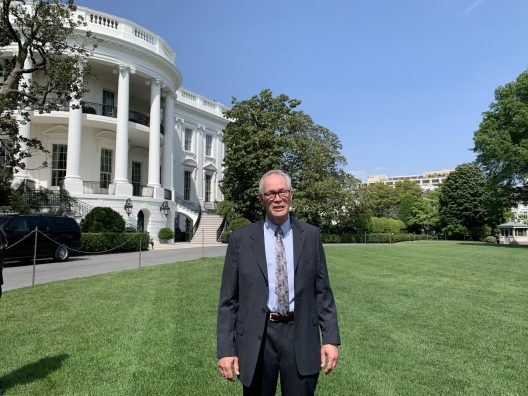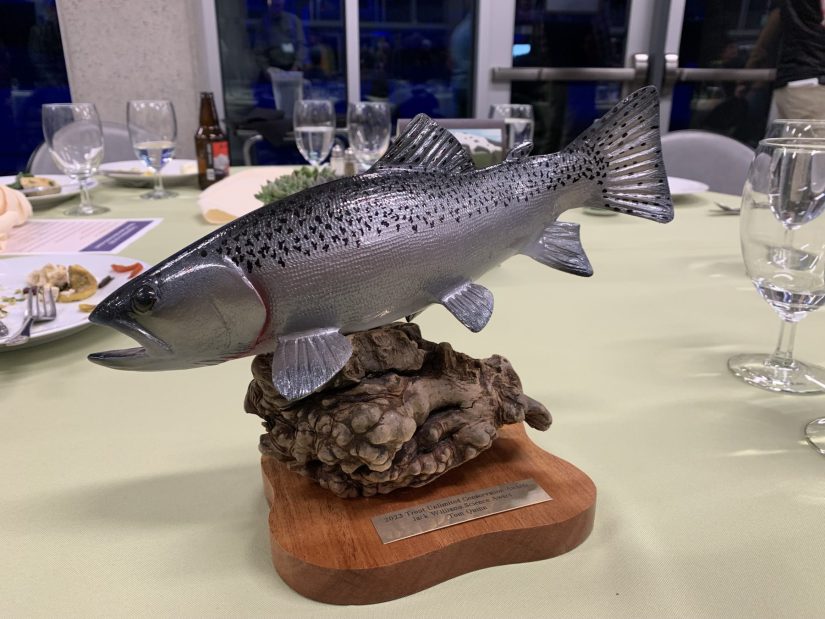Tom Quinn receives Jack Williams Award for Applied Conservation Science
As part of the Trout Unlimited annual awards, SAFS Professor Tom Quinn has received the Jack Williams Award for Applied Conservation Science. Read about why Tom was selected for this award in the write-up below, reposted from Trout Unlimited.

Recently retired from full-time teaching and research at the University of Washington, Professor Tom Quinn deserves massive thanks for the huge body of research and writing on Pacific Rim fisheries and especially on salmon and trout of the Pacific Northwest and Alaska. Notwithstanding his very urban roots in New York City, Professor Quinn migrated westward after college, completing his master’s degree and then Ph.D. in the Fisheries Department at the University of Washington. After spending a few years at the University of British Columbia, Professor Quinn returned to the University of Washington where he taught—or rather inspired—students for over thirty years. His research and teaching encompassed virtually every aspect of the behavior, ecology, evolution, and conservation of Pacific salmon, trout, and char, and their ecosystems. His curiosity has led him to explore everything from how salmon home to their natal streams, to how bear predation enhances salmon ecosystems, to how salmon and trout recolonize streams after dam removals, to how salmon transplanted to the Southern Hemisphere adapt, and to how human activities have impacted the evolution and ecology of trout and salmon. Capping off the hundreds (yes, hundreds) of scientific papers, his seminal book, The Behavior and Ecology of Pacific Salmon and Trout (2018) is a beautiful and accessible work that dives deeply into all aspects of the life cycle of Pacific salmonids.
Professor Quinn’s legacy is not merely the words he has put on paper. He dons his waders and works in the field. For decades, he has traveled to Alaska’s Bristol Bay region with students to provide training and conduct hands-on research into limnology, juvenile fish ecology, spawning behavior and life history of adult salmon, population dynamics, and fishery management. Indeed, as a field ecologist, Tom is well-known in the communities surrounding Lake Iliamna where he led a field research program for nearly thirty years, bringing his knowledge and passion to the region, and to the generations of students who have had the opportunity to walk streams and categorize bear-killed salmon alongside him. His decades of work on salmon in Alaska were instrumental in the successful efforts to halt the Pebble Mine project that jeopardized the sockeye salmon runs in Bristol Bay. His efforts were even recognized by the White House at a Rose Garden ceremony in May.
Yet, Tom’s most lasting legacy will be the students he has taught and inspired. His enthusiasm, scholarship, careful research, and love of trout and salmon have inspired several generations of students to emerge as leaders in salmon and trout conservation. His students are now leaders in government agencies, conservation organizations, academia, and industry. Those leaders will undoubtedly carry on Tom’s legacy and enthusiasm for many future generations to care about conserving salmon and trout. Trout Unlimited is incredibly thankful for Professor Quinn’s lifelong work and inspiration, and we can think of no one more deserving of the Jack Williams Award for Applied Conservation Science.
